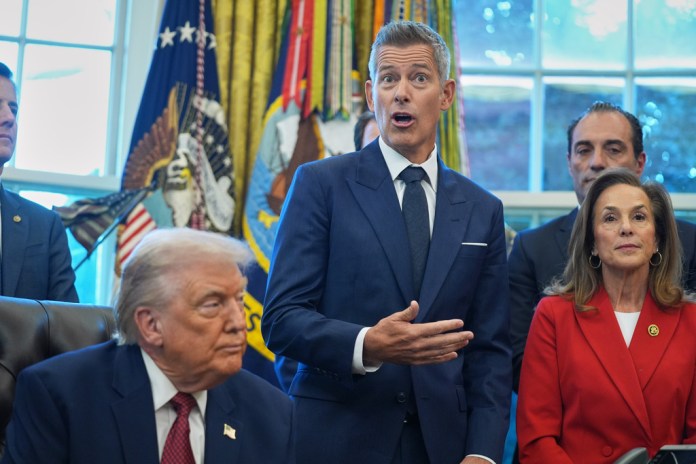EPA ran ‘cruel’ experiments on animals – Washington Examiner
The article from the Washington Examiner discusses controversial experiments conducted by the Biden administration’s Environmental Protection Agency (EPA) that involved subjecting small animals, primarily rats and mice, to harmful conditions akin to those experienced during wildfires. this research, which aimed to study the impacts of wildfires on mental health and vulnerable communities, has drawn criticism from animal rights groups due to its ethical implications.
Between 2022 and 2024, the EPA conducted various studies where animals were exposed to extreme heat, simulated wildfire smoke, and even solitary confinement. The findings reportedly contributed to understanding how climate change and poor living conditions affect communities’ resilience to wildfires. Critics, including the White Coat Waste Project, argue that such animal testing is cruel, wasteful, and unneeded. They advocate for phasing out these practices,claiming they consume taxpayer dollars while yielding irrelevant results.
The article highlights the disconnect between the EPA’s animal experimentation efforts and their stated goals of promoting environmental justice. As the agency’s strategic plan emphasizes addressing historical inequalities, critics express concern that the focus on animal testing undermines these objectives. The controversy has also put a spotlight on EPA nominee Lee Zeldin, who has previously supported defunding animal testing but faces mixed reviews from various advocacy groups. the article raises questions about the effectiveness and ethics of using animals in environmental research.
‘Cruel, costly, and ineffective’: Biden administration forced animals to inhale smoke to study impact of wildfires
EXCLUSIVE — President Joe Biden’s Environmental Protection Agency carried out research subjecting small animals to harmful conditions to study the effects of wildfires on things such as “mental health crises” and “vulnerable communities.”
The experiments, conducted between 2022 and 2024, involved subjecting rats and mice to “extreme heat exposures,” simulated wildfire smoke, and conditions such as solitary confinement to gain information on the impacts of wildfires and climate change, according to a research brief compiled by the White Coat Waste Project and obtained exclusively by the Washington Examiner. Multiple groups oppose federally funded animal experimentation on ethical grounds. The White Coat Waste Project, for example, recently released a four-point plan to phase out animal testing, which it argues will end instances of animal cruelty and save taxpayers billions.
While the EPA is funding research into wildfire recovery, it appears to have some higher priorities. The agency’s 2022-2026 Strategic Plan, for instance, uses the word “wildfire” just 10 times whereas the phrase “environmental justice” appears 134 times.
“The Biden-Harris Administration is deeply committed to protecting human health and the environment for all Americans, including those historically marginalized, overburdened, underserved, and living with the legacy of structural racism,” the plan reads.
This philosophy was borne out in the agency’s animal experimentation. For instance, a series of EPA studies in 2024 investigated how climate change was affecting “vulnerable communities” by locking rats in hot cages and forcing them to breathe simulated wildfire smoke. Another study sought to contribute to “our understanding of environmental justice” by housing rats in different quality enclosures and pumping them full of smoke to model how poor housing situations affect people’s resiliency to wildfires.
It is unclear how, if at all, this research is being applied to aid recovery from the wildfires in Southern California.
In a 2023 EPA study identified by the White Coat Waste Project, rats were forced to inhale wildfire smoke over a period of weeks while scientists disrupted their sleep to extract information on how poor sleep affects humans in the contexts of socioeconomic disadvantage, wildfire risk, and climate change. Another study investigated how climate change is affecting “mental health crises” by feeding rats unhealthy diets, locking them in hot cages, and pumping smoke into them.
“We’ve uncovered that after killing the Trump EPA’s widely supported plan to phase out wasteful experiments on dogs and other animals, the Biden-Harris EPA’s idea of protecting the environment is squandering millions of tax dollars fattening up lab rats with unhealthy diets, locking them alone in burning hot cages, and forcing them to inhale simulated wildfire smoke for irrelevant animal tests in the name of ‘environmental justice,’” White Coat Waste Project Senior Vice President Justin Goodman told the Washington Examiner. “EPA nominee Lee Zeldin led efforts with White Coat Waste to defund wasteful animal testing when he was in Congress, and we’re urging him and the Trump administration to quickly restore their commonsense strategy to cut the EPA’s woke animal testing.”
Zeldin’s nomination hearing is slated for Thursday. He received the endorsement of Animal Wellness Action, a bipartisan animal rights organization, but has also been criticized by the Sierra Club, a liberal environmentalist group. The Sierra Club called Zeldin an “anti-American worker nominee” whereas Animal Wellness Action described him as having displayed “outstanding advocacy and leadership on animal welfare issues.”
In one of the 2024 studies uncovered by the White Coat Waste Project, the EPA facilitated an experiment in which mice faced “a series of acute extreme heat exposures,” with some being held in “depleted housing” and exposed to “flaming eucalyptus wildfire smoke.” The rodents were exposed to these conditions to understand better how “climate change and lack of environmental enrichment” affect “certain populations in the United States.” A 2022 EPA experiment, meanwhile, saw rats placed alone in cages for eight weeks and forced to breathe wildfire smoke to study how the human body reacts to smoke when a person is experiencing loneliness.
“As a lifelong animal lover and President Trump’s EPA Administrator, in 2019 I proudly worked with White Coat Waste to announce a first-of-its-kind plan to responsibly phase out cruel, costly, and ineffective animal testing conducted by and required by the EPA,” Andrew Wheeler, who served as EPA administrator under then-President Donald Trump between 2019 and 2021, told the Washington Examiner. “I was shocked when, instead of attempting to meet my benchmarks for replacing animal testing with superior alternatives, the Biden-Harris Administration completely canceled the plan soon after President Trump and I left office. Reinstating my animal testing phaseout at the EPA is an easy way for the incoming Trump administration to spare thousands of dogs and other animals from painful experiments, protect public health, [and] save tens of millions of tax dollars.”
There is debate in the scientific community about how effective animal experiments are at producing information useful for human health. Proponents argue that animals and humans are genetically similar enough to function as proxies and point out that the shorter life span of rodents allows scientists to study health conditions over many generations in a short period of time. Critics, however, charge that there is a growing body of scientific evidence suggesting that the reliability and predictability of animal experiments on human conditions is subpar, which could harm people.
Both sides generally agree that there are ethical considerations regarding animal experimentation.
Support for shuttering animal testing exists across the political spectrum. While the White Coat Waste Project is typically described as right-of-center, People for the Ethical Treatment of Animals, a group with a more liberal reputation, also opposes the practice.
“PETA opposes all experiments on animals and is committed to replacing the use of animal tests with more reliable and human-relevant non-animal methods,” Amy Clippinger, managing director of PETA’s Regulatory Toxicology Department, told the Washington Examiner. “For more than a decade, PETA scientists have collaborated with U.S. and international regulatory agencies, including the U.S. Environmental Protection Agency, companies, test method developers, and academics to advance the development and use of efficient and effective non-animal testing approaches that can protect humans and the environment. One focus area of our work is inhalation testing, where there are a number of computational and cell-based tools, such as cell lines, reconstructed human tissue models, human lung slices, and ‘lung-chips,’ that can be used to predict the potential effects of inhaled chemicals or air pollutants on the human lungs. Investing in non-animal approaches is the best way to understand the potential outcomes of and protect humans against inhaled substances, including smoke.”
The EPA did not respond to the Washington Examiner’s request for comment.
" Conservative News Daily does not always share or support the views and opinions expressed here; they are just those of the writer."




